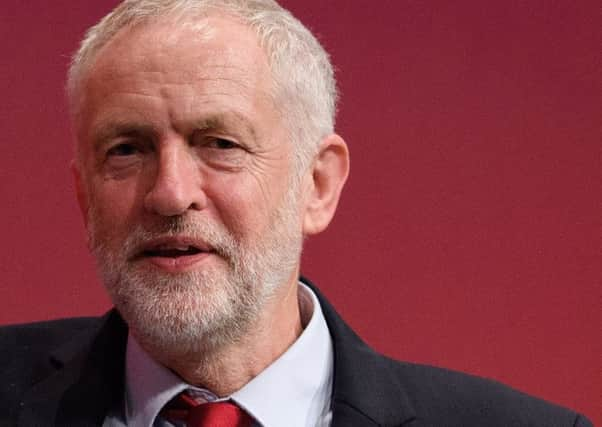Labour Conference: How expensive would PFI plans be in Scotland?


John McDonnell launched a broadside against the proliferation of Private Finance Initiative (PFI) contracts that allowed private investors to provide capital for building public buildings, which they charged the Government for.
The Shadow Chancellor told the party faithful in Brighton that a Government led by himself and Mr Corbyn would seek to bring PFI contracts back in to public control.
Advertisement
Hide AdAdvertisement
Hide AdUnlike most mooted policy changes at the Labour party conference, this didn’t seem to attack the Conservatives’ legacy so much as Labour’s own.
Sky worked out that while the PFI scheme was initiated by a Tory Prime Minister, John Major, some 84 per cent of projections were undertaken while Labour were in Government.
PFI in Scotland has always been a battleground, and with Labour’s policy now to take over the costly schemes, many commentators are asking whether such a move is feasible.
Scale in Scotland
Last year, at the height of the Scottish election campaign, figures on PFI emerged with the SNP said represented proof of Labour’s “toxic legacy” on infrastructure and spending.
The issue reared its head after a number of PFI-built schools across the country were flagged for potentials safety issues.
Some 80 projects completed between 1993 and 2006 (mostly under Labour) were still being paid for by the taxpayer, according to the research.
The data appeared to show that the public would pay many times over for PFI projects, a similar criticism to that levelled by John McDonnell in Brighton yesterday.
The cost
The Treasury estimates that there are currently over 700 PFI projects across Britain that are worth almost £60bn.
Advertisement
Hide AdAdvertisement
Hide AdHowever, the total cost to the public purse is likely to be much higher, with one Scottish example being the Royal Edinburgh Infirmary, which is expected to cost £1.4bn over three decades.
While the speech was bombastic, a post-match briefing from Labour’s shadow Treasury team said that only where necessary would PFI contracts be taken over by the Government.
Labour’s Peter Dowd said that the total cost for bringing the PFI projects to heel wouldn’t run into ‘billions and billions’.
That seems unlikely, given the significant amount of upfront funding needed to take back the PFI deals, though the Conservatives’ claim that the plan was completely unaffordable was also not strictly true.
Strong words?
Last month, the SNP noted figures in the annual GERS figures that showed that Scotland’s PFI payments have risen to over £1billion a year for the first time.
They repeated their pre-election demand that Labour, and their former coalition partners in the Liberal Democrats, apologise for ‘inflicting’ these payments on Scotland.
John McDonnell’s plan, while unlikely to make similar requests for an inter-party mea culpa, could run into opposition among the Labour group at the Scottish Parliament.
The SNP has sought to distance themselves from the ‘toxic legacy’ they lay at Labour’s door, and would be wary of working with a Corbyn Government to try and rid Scotland of what are considered onerous contracts.
Advertisement
Hide AdAdvertisement
Hide AdUnless Theresa May decides another snap election is the best way to salvage her ailing premiership, we remain years away from the next big vote.
It remains to be seen what version of this policy will be in Jeremy Corbyn’s party manifesto, and the impact in Scotland.
However it is virtually guaranteed that it will be financially, and even politically, highly expensive.
